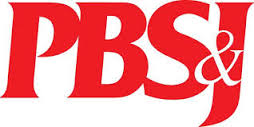SEC Starts the FCPA Year Off with a Bang
 You have to give credit to the SEC and its enforcement approach. They have learned many lessons along the way, especially when it comes to prosecuting individuals.
You have to give credit to the SEC and its enforcement approach. They have learned many lessons along the way, especially when it comes to prosecuting individuals.
The SEC appears to have regained some focus in its enforcement approach. If this is a sign of things to come, 2015 is going to be a very interesting year.
In its first enforcement action of the year, the SEC settled with PBSJ Corporation, a predecessor company that was acquired by WS Atkins in 2010, and Walid Hatoum, a former executive of PBSJ. Under the settlement, PBSJ (i.e. WS Atkins since PBSJ no longer exists) agreed to pay approximately $3.4 million in disgorgement and penalties and Hatoum paid a $50,000 penalty. Hatoum’s settlement did not require an admission of liability.
The most significant aspect of this enforcement action is the fact the SEC brought both actions together at the same time. If this reflects the SEC’s intention to bring corporate resolutions along with individual actions, this could be a new and significant trend.
Logically, it would make sense. If a company violates the FCPA and wants to settle, prosecutors have to rely on conduct by one or more individuals who violated the FCPA. To bring simultaneous individual actions against the worst actor, or the most responsible actors, would be an interesting charging policy.
The SEC’s willingness to bring individual actions has surfaced after a two-year break. We do not know why the SEC has refrained from individual enforcement actions for two years but late last year and early this year; the SEC has resumed FCPA enforcement against individuals.
Interestingly, the facts at issue in this enforcement actions, centered around events in 2009. PBSJ is a provider of engineering and architectural services in international markets. Hatoum, who rejoined PBSJ in 2009, was instrumental winning two contracts, one in Qatar and another in Morocco.
A state-owned real estate company awarded the Qatar real estate development contract. Hatoum offered bribes to the Director of International Projects of the Qatar real estate company. The bribes were funneled through a local company in which the foreign official had an ownership interest.
PBSJ also participated in a competitive bidding process for a Morocco hotel resort with the same Qatar real estate development company. Hatoum offered a foreign official to pay a bribe (approximately $750k) through a local partner to secure the Morocco project.
PBSJ and the Qatar company discovered the bribery scheme and rescinded the contract. Hatoum sought to reinstate the contract by offering a job to a second Qatari official in the hopes that he would support reinstatement of the contract. The Qatari company did not reinstate the contract.
As detailed in the settlement documents, PBSJ failed to conduct any meaningful due diligence of the Local Partner in which the Foreign Official had a significant ownership interest. PBSJ offered over a million dollars in payments through the Local partner to the Foreign Official. PBSJ also had no applicable internal controls to verify the purpose of the payments to the Local Partner.
 The SEC noted that the Local Partner never completed a due diligence questionnaire, and PBSJ never inquired as to the Local Partner’s financial condition, work experience or ability to perform the work.
The SEC noted that the Local Partner never completed a due diligence questionnaire, and PBSJ never inquired as to the Local Partner’s financial condition, work experience or ability to perform the work.
PBSJ received significant credit for its cooperation in the investigation. PBSJ took immediate steps to end the misconduct once discovered and remediate any areas where Hatoum may have been working. It reviewed and enhanced its compliance program, including implementation of a new due diligence program, additional training, establishment of an international compliance oversight committee, and an annual FCPA audit.















